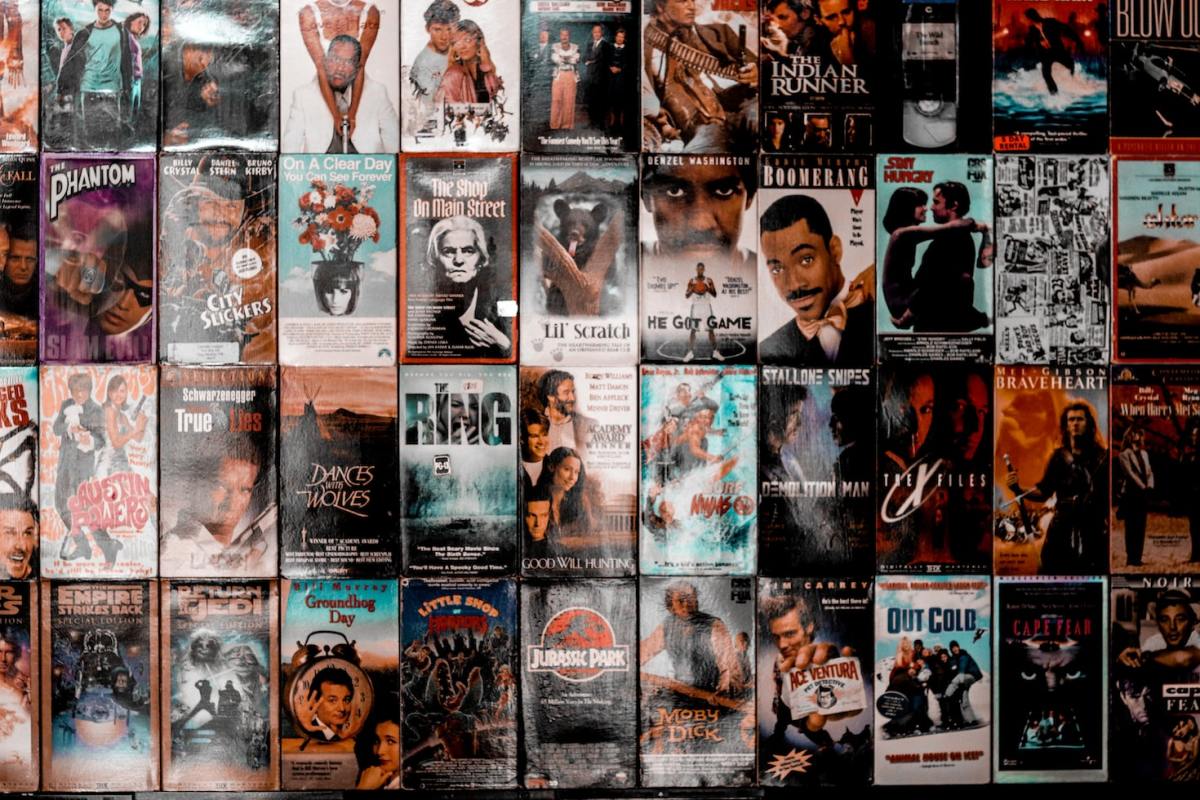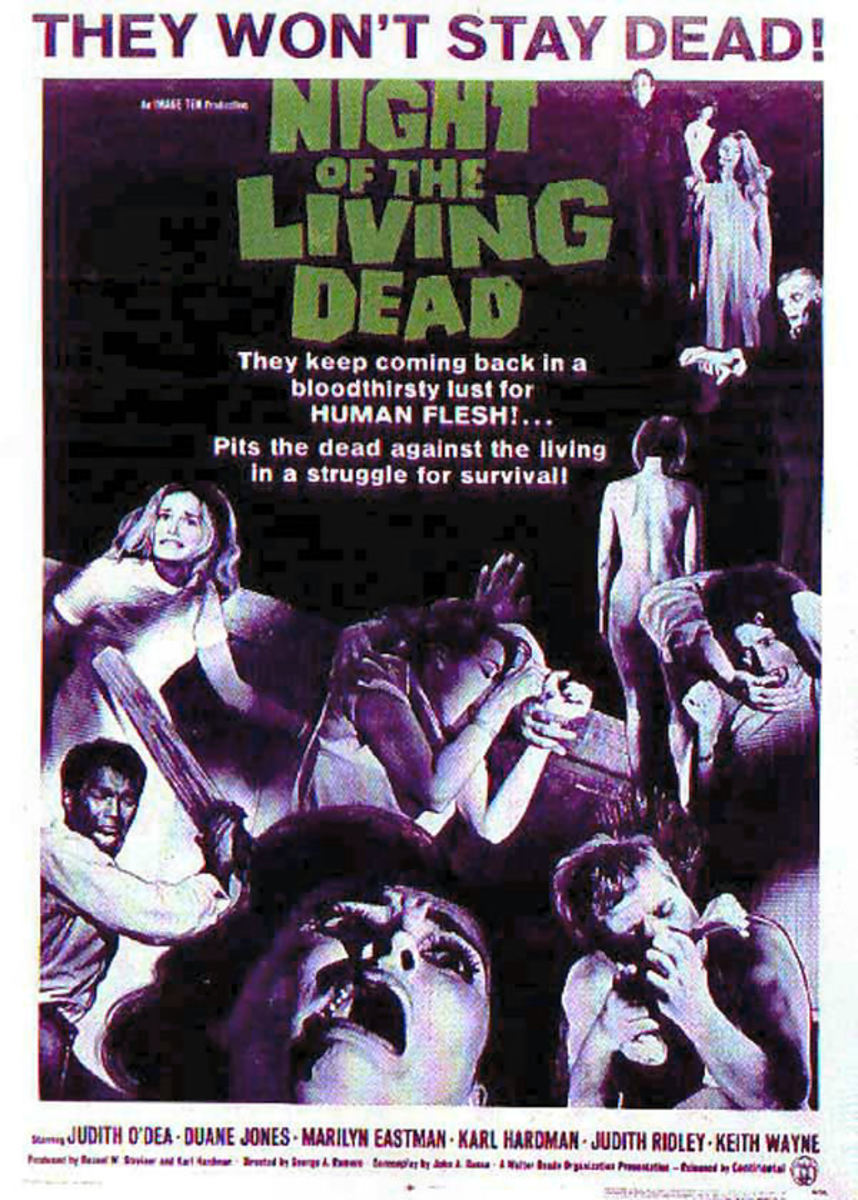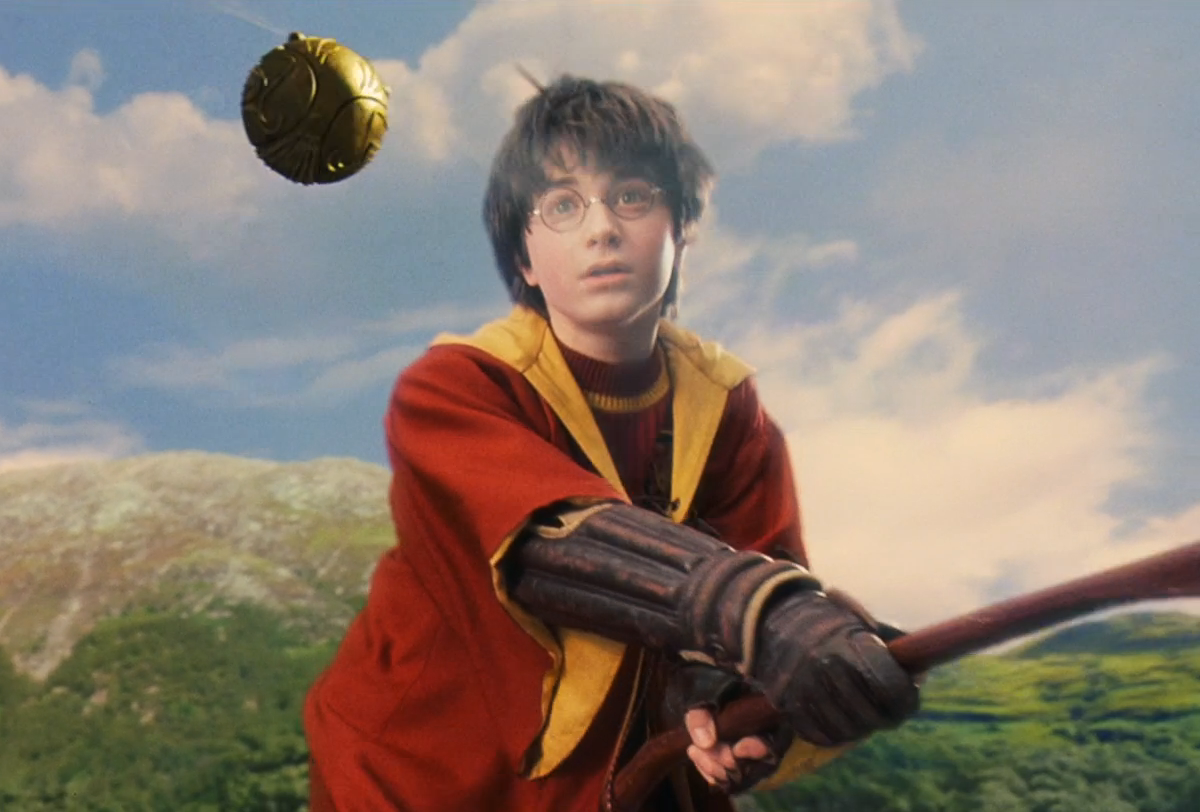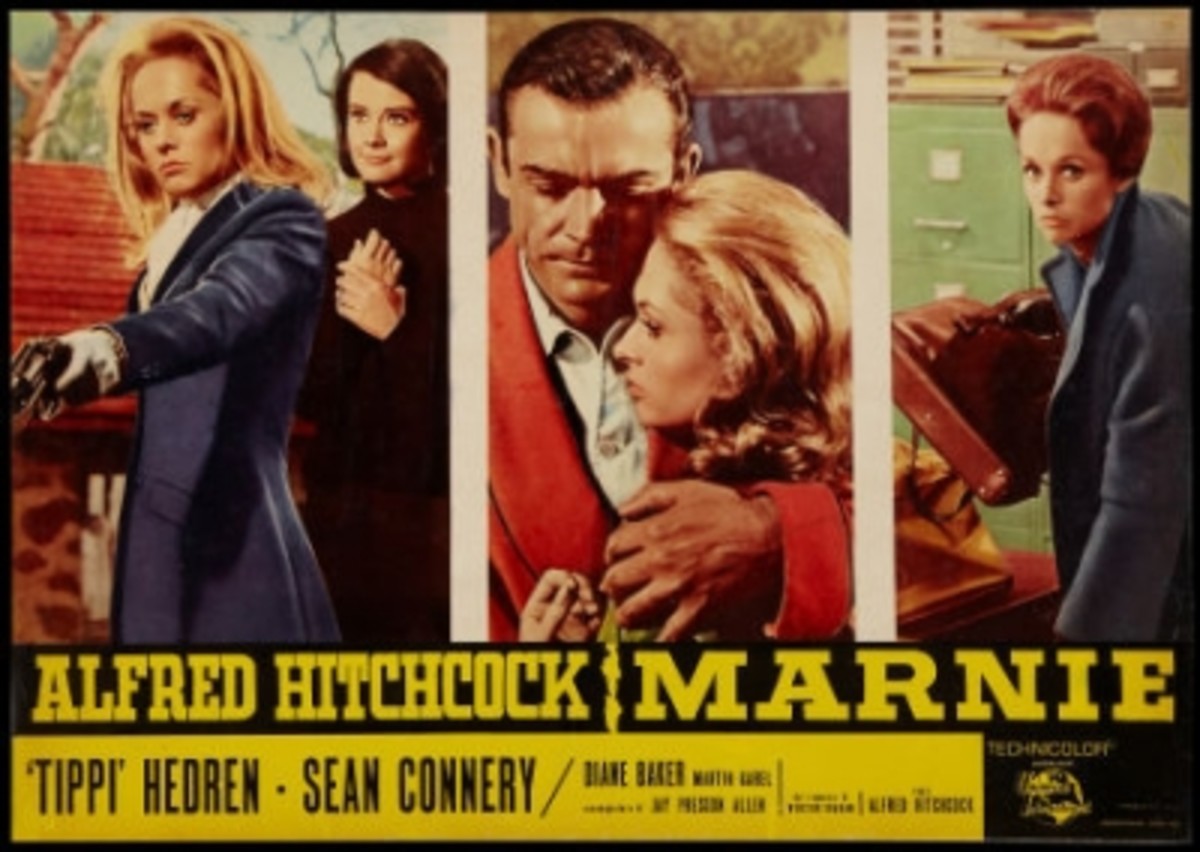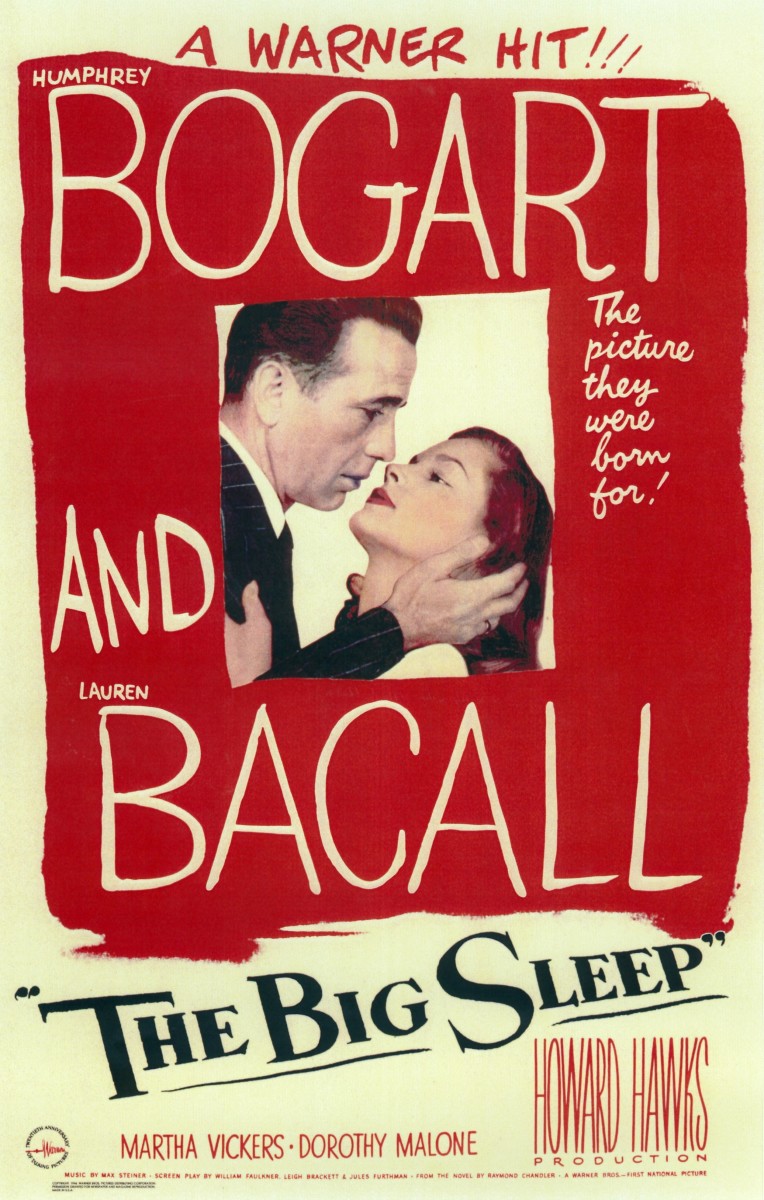Three Film Reviews: Double Indemnity (1944); The Big Combo (1955); and Night and the City (1950)

STOP!
..... Hammer Time!
Just kidding.
IF YOU DO NOT WANT TO READ NEARLY THIRTY-FIVE HUNDRED WORDS OF ANALYSIS; AND YOU WANT TO KNOW MY "BOTTOM LINE" OPINION ABOUT THESE THREE FILMS, GO AHEAD AND SCROLL DOWN TO THE SECTION TITLED: "THE BOTTOM LINE."
Double Indemnity (1944)

Preface
There is a Slovenian philosopher called Slavoj Zizek.
An important intellectual touchstone for his work seems to be the work of a French psychoanalyst and psychiatrist called Jacques Lacan.
The former can be heard, in his talks, frequently referring to Lacan. Now, in one of Slavoj Zizek's lectures, which can be found on YouTube ("The Reality of the Virtual"), the philosopher, at one point says the sentence:
"For Lacan the minimum definition of the real is that which resists symbolization."
Now, I cannot claim to understand fully what Dr. Zizek means by that. However, he uses quantum physics as an example. He says that the strange, wondrous universe that is revealed to us through the lens of quantum physics is utterly incomprehensible to the human intellect. The idea is that we cannot come up with the metaphors and similes to relate such findings; such findings are outside of human experience, therefore untranslatable in the way that Spanish can be "translated" into English, for example.
The reason that Spanish can be "translated" into English is because the people of Spain and the people of England are both human beings. Therefore the experiences of their lives are similar and relatable to one another.
This is emphatically not the case, Zizek claims, with quantum physics.
Stay with me.
Michael Jackson
Slavoj Zizek's and Lacan's concept is useful to us, by way of what I am going to call: by way of alliteration.
Here's what I mean by that:
I always say that Michael Jackson was transcendentally original. There was literally no other act like him in music. No one looked like him (in terms of fashion); no one sounded like him; and no one moved like him.
There was no one you could compare him to, or categorize him with. He was a miracle of originality, in my opinion.
Now, because Michael Jackson, in his transcendent originality, resisted categorization, you could not say that he was "like..." this or that other artist or group.
In this way, then, to put it in Zizekian/Lacanian terms, Michael Jackson, with his transcendent originality, "resisted symbolization."
I Said All of That to Say This...
We are going to establish a definition, right here, right now, as a tool for analyzing movies that makes use of the Zizek/Lacan principle outlined above.
In order for a film to be considered a proper big screen theatrical movie, the picture in question must "resist episodic categorization."
In other words, when I am watching a movie, I should not be thinking to myself: "This would make a decent episode of.... (insert name of television series or even old-time network radio series)."
If I find myself thinking that, this indicates the strong possibility that the movie I am seeing is based on a story that is not actually big enough for the big screen.
And even if it had been big enough for the big screen, many years ago upon its initial release, the same cannot be said for the movie today.
This, of course, means that the movie has not, as they say, "held up well," over the intervening years. Sad to say, this is my finding with two of the three noir films under review here.
Does all of that make sense?
I hope so.
Now on to the reviews.
Double Indemnity (1944)
Let me start by saying that this is one of the films that fall under what I have called "episodic categorization."
I can easily imagine this entire film as an episode of the television show, Murder, She Wrote starring Angela Lansbury.
How so?
I'll come to that shortly.
This movie features two certified big screen legends in Edward G. Robinson and Barbara Stanwyck, along with, perhaps, a near-legend in Fred MacMurray.
The story
Edward G. Robinson is the chief claims examiner (or "insurance investigator") for a large insurance company. Fred MacMurray is the sharp-witted, smooth-talking number one salesman for the company; he is also the man that the former would very much like to see appointed as his assistant, because the latter, in the opinion of the former is "too smart to be a salesman."
Miss Barbara Stanwyck is the young wife of a relatively prosperous man in his later middle years.
Robinson is obsessed with outsmarting and imprisoning insurance cheats; and he is quite good at it, "the best" one might say.
It turns out that MacMurray, in his secret heart, is obsessed with quite the opposite desire: to work out a foolproof way to "crook the wheel," as it were, to cheat the insurance company out of a substantial amount money, a small fortune without suspicion.
Stanwyck does the old woe is me, my prosperous older husband is being "mean to me," "he's always been mean to me" routine, looking for a shoulder to cry on, and she finds that of our sharp insurance salesman.
Before anyone can say ("What about a divorce lawyer?"), the Mac and Stanwyck has killed her husband and staged it to look like an accident, the kind of accident whose extremely low probability of occurring causes the insurance company to pay out double the indemnity.
Ultimately, Robinson's character, with a heavy heart (his and the Mac's characters are best friends) foils the scheme.
In other words: rather standard.
Murder, She Wrote
Why did I say that I can easily imagine this movie as an episode of Murder, She Wrote?
Those of you familiar with the show, know that Angela Lansbury is Jessica Fletcher, the titular "She" in Murder, She Wrote. Miss Fletcher is a former school teacher, who now writes mystery novels, and is better at solving "real-life" homicides than any police force.
That is her shtick.
Most of the time that is precisely what each episode entails. However, on occasion, after the opening credits, we see Mrs. Fletcher at her typewriter or garden. She looks up at the camera, at us, the viewers.
She blathers on about something for a minute, before telling us that it reminds of a story that involved a friend of hers.
That friend is a former jewel thief-turned-insurance investigator. The episode then becomes his adventure.
Now, it is simply my opinion that Double Indemnity does not show us anything that cannot be quite adequately dealt with in a episode of Murder, She Wrote.
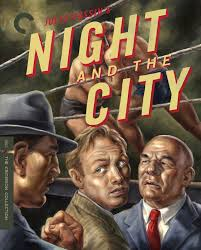
Night and the City (1950)
In film noir, nobody plays manic criminal desperation or lunatic frenzy better than Mr. Richard Widmark, who stars in this picture.
You know something? I started writing this yesterday, 10/07/2019; and I am coming back to it today, 10/08/2019. That means I've had yet another day to think about this particular movie. I'm afraid the more I think about it, the more I realize what a "B-movie" this is.
This realization somewhat alters the approach I need to take with this particular review.
Still, let us muster all of our discipline and focus...
First of all, it is still the case that this particular film succumbs to what I call episodic categorization. You see, I found myself thinking that this movie would have made a decent one-hour episode of The Whistler, a radio crime thriller anthology series that ran from May 16, 1942 to September 22, 1955, according to Wikipedia.
The interesting thing about the technique that show used was that "The Whistler" phantom acted as the conscious of the murderer and narrated the action from his perspective.
The structure of the storytelling in Night and the City (1950) lends itself to The Whistler format.
Now, having said that this film succumbs to episodic categorization, at least in my mind, this means that the story is not "big enough" for the big screen; or, if it ever was worthy, in 1950, the movie has not, as they say "held up well" over the intervening years.
However, having said all of that, I have to say that this film has even bigger problems. The script would have to be rewritten, from top to bottom, to be worthy of being an episode of The Whistler radio program.
Why do I say that?
The short answer is that the film relies on what legendary film critic, Roger Ebert, used to refer to an "the idiot plot." The idiot plot is a story structure that requires everybody in the film to go stupid at the most convenient times, to keep the plot functioning.
This tool of critique is standard among movie critics today, especially those on the Internet. At very least, Mr. Ebert seems to have been one of its earliest pioneers.
Night and the City (1950): The Story in Brief
Harry Fabian (played by Richard Widmark) has a very particular skill set that makes him a highly effective hype man, if you will, for what might be politely called a "gentlemen's club." Good looking, a sharp dresser, and a skilled social chameleon, Harry Fabian can often steer relatively high-class clientele in through the front door of the joint.
This club is run by a husband and wife team; the husband seems to be in his middle years, and it is implied that his wife is about a decade younger.
Now, while attending wrestling match one evening, Harry Fabian is suddenly stuck with the ambition to, as he puts it, "control wrestling in London."
What brought all this on, you ask?
For Harry it is the sight of a legendary Greco-Roman wrestler, a gentleman called Gregorious the Great, raising a ruckus ringside about how his beloved sport of wrestling is being corrupted by this kind of WWE-style nonsense, that would be familiar to us today.
With his young protégé, Nicolai, in tow, Gregorious the Great storms off.
Harry sprints to the ticket booth ahead of them; and then, using his social chameleon skills, he feigns the outrage of a purist, demanding his money back.
He strikes up a conversation with the two true wrestlers, and suggests that the three of them, lovers of true wrestling all, have a drink together.
By the way, I'd just like to say that Gregorious and his protégé are both Greek by nationality. Keep that in mind for later.
The result of this meeting is that Harry runs around the whole East End, asking his friends and associates to lend him... excuse me, invest some money with him. He has a foolproof plan to "control wrestling in London."
The first red flag:
Question: What makes Harry think he can "control wrestling in London," when that job is already filled by the gangster crime boss of London?
In other words, what makes Harry think he can, in any way, move in on this enterprise WITHOUT BEING HIDEOUSLY MURDERED?!?!?!
Oh, by the way, the gangster crime boss of London is also Greek by nationality. Please keep that in mind, as well, for later.
Anyway, nobody he goes is either willing or able to give Harry the cash. As a last resort he turns to his employers, the husband and wife owners\operators of the club he works for.
The result of the meeting is this: If Harry can raise two hundred pounds, his employers will match it, so that he can get his endeavor off the ground.
Night and the City (1950) continued
The second red flag
It simply doesn't make any sense that Harry Fabian, least of all, would be so naïve as to think that the public would be drawn to Olympic-style Greco-Roman wrestling over the newer, flashier, more colorful and fan-friendly, square-ring, WWE-style fare that was then-currently packing them in.
His whole plan is like trying to sell 1980s-style, shoebox-sized portable phones in this era of wafer-thin smartphones and the like.
To continue
The club owner's wife and partner secretly, unbeknownst to her husband, gives Harry the two hundred pounds. Her husband subsequently gives Harry Fabian the additional two hundred pounds.
Why does she do this?
She expects Harry to take that four hundred pounds and use it to buy her a club license of her own. She will then leave her husband; and she and Harry will run the new club together, and perhaps get together in a more romantic way as well.
She expresses a contempt for her husband, which feels forced out of nowhere. While Harry is doing that, he is to "string them along," referring to all of those concerned with the wrestling venture. His true goal is to get that license.
Harry balks at this at first, then verbally complies. However, it is to be she that is "strung along."
Now:
- Harry is given four hundred pounds to get a license for a club.
- Although he is given the money, she makes it clear to him that he will have to use every means of legal and crooked persuasion at his disposal.
- He is to get her that license at all costs.
The third red flag
Harry Fabian has never exhibited the skill set necessary to do what she is asking of him. Remember, he could not even raise a single pound or shilling on his own.
What on Earth made the woman think that he had any "juice" or "pull" inside of city government?
If he could do what she is asking of him, shouldn't he have simply gotten a bank loan to set up his venture --- assuming that the crime boss of London does not have him hideously murdered for trying to move in on his enterprise of "controlling wrestling in London"?
Anyway, Harry Fabian sets up shop. He is promoting "honest" Greco-Roman wrestling, with Gregorious the Great (and his protégé) as the face(s) of the enterprise.
Now, the gangster crime boss of London himself visits Fabian at the training gym he set up. The former tells the latter, in no uncertain terms, that he is not going to get by with what he is doing.
Harry suggests that he tell all of that "... to my partner." He then brings out Gregorious, who is the father of the gangster crime boss of London.
The gangster crime boss of London backs off; and agrees to make no moves against Harry Fabian as long as he keeps his commitment to "that wonderful old man," and promotes "honest" Greco-Roman wrestling.
The fourth red flag
The problem for Harry Fabian is that if he does precisely that, his venture is almost preordained to wind up a commercial flop --- without the gangster crime boss of London having to raise a hand against him.
Oh dear! Oh my! What ever shall he do?
Meanwhile, the owner of the club, the husband (from now on I will simply call him The Husband) makes a verbal agreement with Harry Fabian to be his silent partner and secret financier.
Stay with me.
But The Husband has found out that His Wife (The Wife) gave Harry the initial two hundred pounds, and he is not happy about it.
The Husband then goes to the gangster crime boss of London with a plan to get rid of a problem plaguing both of them: Harry Fabian.
Stay with me.
The Husband then goes back to Harry Fabian and threatens to withdraw his backing.
Why?
Because he allegedly talked it over with one or two people and has been convinced that Greco-Roman wrestling is destined to bomb out commercially.
Enter The Strangler!
But The Husband does know one thing that might make the venture commercially viable after all.
What's that?
Harry Fabian must "get" The Strangler.
The Strangler is the most prominent wrestler from the squared-circle, wrestling mass entertainment side of things.
The fifth red flag
Harry's dilemma
You would think this would be an idea that Harry would have thought of for himself.
However, if Harry does this he will be breaking his commitment to "that wonderful old man," as well as thereby opening himself up to reprisals from the gangster crime boss of London.
But if Harry does not do it, The Husband will certainly withdraw his backing.
The solution, of course, is for Harry to arrange the contest, by getting Gregorious the Great to want it, in order to demonstrate the superiority of true, pure, technical Greco-Roman wrestling.
Okay, I'll stop there with this review.
But you know something?
I have discovered something as I've been writing all of this!
Night and the City (1950) is a movie SO BAD, IT'S GOOD!
What on Earth does that mean?
A movie that is so bad, it's good is a movie whose whole is greater than the sum of its parts.
Night and the City (1950) is such a movie. Virtually every single one of its individual components don't make sense, but yet the result is a movie that is genuinely fun and entertaining --- in the good sense, not in the bad sense.
This movie is good fun and entertaining, not bad fun and entertaining.
How did that happen?
I'll have some reflections on that in the conclusion.
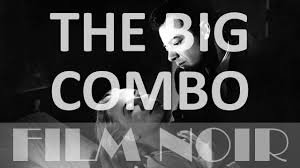
The Big Combo (1955)
Guys, this is a good one... except for the crushing disappointment which is the ending. If this film had been two hours, with a proper ending, I would have called this a 9 out of 10 film.
However, with the ending that is so abrupt, so obviously rushed to get the film's running time under ninety minutes, for some reason, I am forced to knock this all the way down to a: 6.5 out of 10; and believe me, it breaks my heart.
This is an authentic big screen theatrical adventure, that holds up well to this day, again, except for the crushing disappointment of an ending. I was, frankly, blown away by the shaggy jazzy score, the dialogue, the performances, especially Richard Conte as crime boss Mr. Brown, Helen Stanton as Rita, and Jay Adler as Sam Hill.
Everybody was fantastic, but the three I mentioned made the biggest impression on me.
The combination is another word for the Mob, the Mafia, American Organized Crime.
"First is first and second is nobody."
This is the brutal philosophy of mob boss Mr. Brown. You have to be hard. You have to hate the guy that's trying to get ahead of you, on top of you. You have to hate the guy that's trying to destroy you. You have to hate him more than he hates you; and, in turn, you have to be willing to do what he doesn't have the nerve to do.
You might call this his secret of success.
However, there is a little more to Mr. Brown than hardcore thuggery just for the sake of hardcore thuggery.
"You should've hit me back. Tear up his contract, Joe."
Mr. Brown was managing a professional boxer, apparently honestly. On this night his fighter lost a bout.
But Mr. Brown ("Mr. Brown. Only my friends call me Brown.") was not angry. He wasn't even disappointed. He still believed in his fighter in that gung-ho, "You'll get 'em next time" sort of way.
Mr. Brown was encouraging.
He only abandoned the fighter, when he saw that the latter had had the fighting spirit knocked out of him. He had lost the will to fight.
He was not only defeated for that particular bout, but he had been beaten. He love for the sport (as much as he ever had) had been completely knocked out of him.
Mr. Brown tried explaining his philosophy of hate and how the pugilist should use it to his advantage in the ring.
Mr. Brown stands the kid up and slaps him across the face.
The kid only rubs his face and asks Mr. Brown why he had done that....
The Big Combo (1955) continued
Rita: "Give me my shoes. I'm going home."
Lt. Leonard Diamond: (hands over her shoes)
Rita: "Put them on for me."
Lt. Leonard Diamond: (obediently slips them on her feet)
Rita: (cooing softly) "When she hurts you again, baby, don't wait six months."
Now, Helen Stanton is glorious in this scene. The "she" Rita (Helen Stanton) is referring to is one Susan Lowell, the current love interest of mob boss, Mr. Brown.
All I want to say here is that I found myself thinking: Leonard, you fool! Rita is worth a dozen Susan Lowells!
Lieutenant Joe Diamond is the cop intent on crippling "The Big Combo," the Mob, in his little corner of existence by doing whatever it takes to come up with the goods to put Mr. Brown in prison for a very long time.
Lt. Diamond: "What is there about a hoodlum that appeals to certain women?"
Rita: "Hoodlums, detectives. A woman doesn't care about how a man makes his living, only how he makes love. Who is she, Leonard?"
Lt. Diamond: (Looks at Rita, surprised)
Rita: "I'm stupid, Leonard, about everything but men. Them, I know."
Two things before I do "The Bottom Line."
1. Once again, Helen Stanton is glorious in this role. I think something great was done with the two female leads.
- One would think that Rita would have been made to be the girlfriend of Mr. Brown, and Susan Lowell the one again, off again, hopeful love interest of the cop.
- That is the dynamic you find in the noir film, The Killers (1946).
2. I ultimately find this role reversal convincing because of something Rita said: "A woman doesn't care how a man makes his living, only how he makes love."
- This line reminded me of a scene from Suicide Squad (2018).
- Now, in that scene we got, what I take to be visual evidence of the fact that Harley Quinn became Joker's lover/girlfriend/partner in crime because she became attracted to and fell in love with Joker.
- We saw visual evidence of the fact that, had "Joker," been a relatively straight-laced, law-abiding, suburban stockbroker or banker, or something like that, with a proper, upper middle class lifestyle, complete with home in the suburbs, or exurbs ---- Ms. Quinzelle would have happily followed him into that world and bore him the requisite 2.5 children, to go along with the white picket fence...
- That scene reminded me of a line from a song by Gladys Knight and The Pips: Midnight Train to Georgia (1973).
- There's a line in that song: "I'd rather live in his world, than be without him in mine."
- Incidentally, this is why I have always thought Jared Leto's portrayal of the Joker was exactly appropriate for that film.
Anyway....
The Bottom Line
Double Indemnity (1944)
I can only give this film a 6 out of 10. There's nothing "wrong" with it; it's a perfectly fine, inoffensive movie. It's workmanlike and efficiently put together and executed by the cast.
The thing is that I can imagine this as an episode of the television mystery show, Murder, She Wrote.
As I explained, with any movie that I can imagine as a television episode, I tend to think that the story is not actually "big" enough for the big screen.
The Big Combo (1955)
This is the biggest heartbreak disappointment for me, out of the three films. This movie was on its way to becoming A Glorious Picture, for the first 70 minutes, or so. But for some reason either the studio, or producers, or whoever, seems to have wanted the film to come in under ninety minutes.
The result of this was a forced, cramped, rushed ending that ultimately robbed the film of all narrative and dramatic integrity.
As a result of this, what should have been an easy 9 out of 10 film, is knocked way down to a sadly regrettable 6.5.
Did I mention that my heart is broken over this?
Night and the City (1950)
This is the most interesting and puzzling film, for me, out of the trio.
The first thing to say is that, like Double Indemnity (1944), Night and the City (1950) does succumb to what I call "episodic categorization."
Basically, when I watch and movie, and I think to myself that the story could be adequately played out on a "smaller" medium, other than the big screen in public movie theaters, then my tendency is to think that the story originally presented in theaters is not "big" enough today. That is to say, that in my opinion, the film does not quite "hold up," as they say, to whatever original glory it may have had.
Does that make sense?
Good.
I mentioned before that I can imagine this film, starring Richard Widmark, as an episode of the old time radio network crime anthology program, The Whistler. The format of that radio show is precisely appropriate to the kind of story we're dealing with in Night and the City (1950).
In "The Whistler," the character of The Whistler narrates the action from the point of view of the protagonist criminal (usually an eventual murderer).
The Bottom Line (continued and concluded)
Night and the City (1950): Bottom Line wrapped up
The problem with this film is that it is not as good as Quentin Tarantino's Jackie Brown (1997).
Jackie Brown is both fun and coherent.
Night and the City (1950) is fun and incoherent.
Here's the "kicker," as they say. If Night and the City (1950) had been made more coherent, it very well might have been rendered less fun, even boring. Indeed, it could be that that is the very point of the chaotic plot: as a reflection and manifestation of a chaotic central character.
Whaaaaaaaatttttt??!!???!!!
Here is the most succinct way I can put this
Jackie Brown's motivation is fully expressed by... Jackie Brown! She is determined to pull, what turns out to be a lethal swindle on Ordell Robbie (hardened criminal) because, despite the danger, she fears ending up broke and obscure in her middle age orders of magnitude more than anything that Ordell could do to her.
Harry Fabian's (Night and the City [1950]) motivation is the same. He seeks to pull a maneuver on the gangster crime boss of London because he, too, has a much greater fear of coming to the end of his life penniless and obscure, having made no impact on the world.
However, Harry Fabian's motivation is not fully expressed by... Harry Fabian!
As amazing as that sounds, it is the truth. Other characters supply parts of Harry Fabian's motivation to him, to the plot, to the movie ---- for their own reasons, of course.
The result of that is an incoherent but fun movie that is held together by the manic criminal desperation and lunatic frenzy of Harry Fabian, as portrayed by Richard Widmark.
One last thing
I have become aware, by accident, that there has been a remake of this film: a 1992 release starring Robert De Niro.
I have not seen that, but I must say I have my doubts.
Robert De Niro is a great actor, of course. However, he mostly plays cool and tough on screen.
Night and the City (1950) needed an actor good at playing manic criminal desperation and lunatic frenzy for the protagonist role of Harry Fabian, in order for an incoherent plot to play out in a fun way. As I mentioned before, it is my opinion. the incoherent plot is a manifestation of an incoherent temperament of an incoherent, fun, fast-talking, slickster like Harry Fabian.
Now, to my knowledge, Robert De Niro has not had much practice (at least in the filmography that I think most of us are familiar with) playing manic criminal desperation and lunatic frenzy the way Richard Widmark had.
With Robert De Niro in the main role, I thought to myself that the filmmakers would have had to do two things:
- Either rewrite the script to make it coherent and boring, leading to a competent, workmanlike, but boring and unremarkable film.
- Or leave the incoherent plot in place, with Robert De Niro (who usually plays cool and tough), almost certainly, trying to portray manic criminal desperation and lunatic frenzy most unconvincingly.
I give this film an affectionate 6 out of 10.
Alright, we're done.
Thank you for reading!

